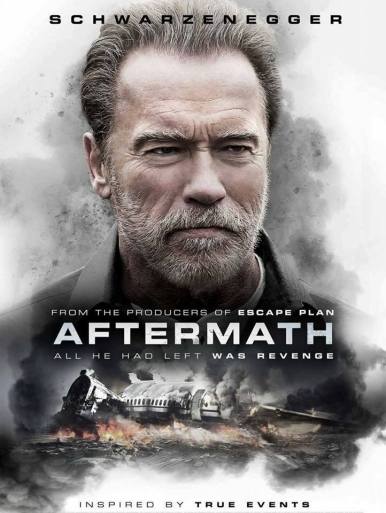There’s no argument that, for probably the rest of human history, Arnold Schwarzenegger will be remembered purely as an action star. And quite rightly too. There aren’t too many actors that can say they played one of the greatest heroes in sci-fi history AND one of its greatest villains. And that’s just the Terminator. If you also take into account Conan, Predator and the best only live-action Mr Freeze on the big screen, it’s hard to separate the action genre from the Austrian Oak.
But there’s a little bit of me that’s disappointed more attention isn’t paid to his dramatic roles. Like Robin Williams in One Hour Photo or Jim Carrey in Eternal Sunshine of the Spotless Mind, seeing an actor outside of their traditional genre can lead to some amazing performances.
To be fair, it’s not as if there are an abundance of dramatic Schwarzenegger roles, but 2015’s Maggie was an incredible revelation (at least for me). To play a grieving father dealing with the emotional fallout of his dying daughter would have been a tough role for any actor. But Schwarzenegger ends up being more than capable in bringing believable pathos; and the film in turn stands out as an excellent example of just how versatile he is as an actor. While Aftermath tries to do something similar, it doesn’t quite reach the same heights.

Inspired by true events, Aftermath follows Roman Melnyk (Arnold Schwarzenegger), a construction worker looking forward to the return of his wife and pregnant daughter from their trip to Eastern Europe. But on reaching the airport he is informed that there has been a mid-air collision, and all those on board have been killed.
Meanwhile, the flight controller on duty at the time, Jacob “Jake” Bonanos (Scoot McNairy), is traumatised by the fact that he might be responsible for the deaths of innocent people. Unable to cope, he falls into a deep depression and essentially abandons the relationship with his wife (Maggie Grace) and son (Judah Nelson).
As time passes, both men are pushed to their utter limits and soon the pent-up emotions threaten to explode in the ultimate expression of righteous anger and fury.
To be completely fair, the basic plot of Aftermath is technically one that Schwarzenegger has done before. 2002’s Collateral Damage more or less has the same inciting plot point: a terrible tragedy befalls the leading man’s family, and sets him down a path to try and gain justice.
However, unlike Collateral Damage, here Schwarzenegger’s character doesn’t feel the need to murder half of Columbia. In fact, while it might be hard to believe, Schwarzenegger does an incredible job in coming across as an every-man. Calm and collected, with no ridiculous one-liners, he’s nothing more than an average blue-collar worker trying to come to terms with a beyond average situation.
But this is a two-hander, and McNairy gives as good a performance as his co-star. As his pain comes from explosive guilt rather than self-reflective loss, he arguably has the easier role. But despite the fact that his role is far more “showy” than Schwarzenegger; he still brings a great deal of sympathy to what could have been an easily hated character.
But good acting can’t help overcome the most significant problem in the script: absolutely zero conflict. The two lead characters spend a large portion of the movie apart from each other, and as a result the movie finds it difficult to mine any type of drama. In addition there are moments that are just a bit too heavy-handed, such as Ronan’s excitement to see his family again, the debris-strewn crash site or the wall full of photos and newspaper clippings. In other words, a very movie-esque approach to grief.
In fact, over the course of 90 minutes director Elliot Lester never successfully finds unique ways for his characters to display their grief. There is scene after scene of each actor alone and moping around, but this quickly becomes repetitive. And the less said about the ending the better. While it does accurately reflect what happened in real life, said ending is neither a powerful or emotional climax. Instead the film seems to sputter to its final moments, unable to bring closure to either the film’s themes or plot.
Aftermath’s structural and thematic problems are many, but they don’t take away from the central accomplishment of its main duo. Both Schwarzenegger and McNairy give strong, memorable performances that maybe could have been award-worthy if it had been in service of a much better script.
Overall Score:

Photo Sources: IMDb

One Reply to “Review: Aftermath (2017) – A Great Dramatic Performance From The Governator”